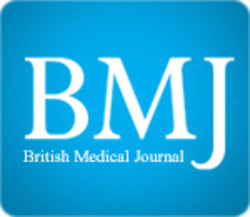 “Controlled and open label trials have demonstrated efficacy of cannabidiol for certain epileptic encephalopathies.
“Controlled and open label trials have demonstrated efficacy of cannabidiol for certain epileptic encephalopathies.
However, plant derived cannabidiol products have been used almost exclusively. Efficacy of synthetically derived cannabidiol has not been studied before.
The objective of this study was to evaluate tolerability and efficacy of synthetic cannabidiol in patients with pharmacoresistant epilepsy.
Efficacy and tolerance in our study of synthetic CBD treatment in pharmacoresistant epilepsy is similar to open label studies using plant derived CBD.
Regarding economic and ecological aspects, synthetic cannabidiol might be a reasonable alternative to plant derived cannabidiol.”
https://www.ncbi.nlm.nih.gov/pubmed/31920934
“Over the last decade, the therapeutic use of cannabidiol (CBD) in intractable epilepsies has increased considerably. Its anticonvulsant properties have been shown in several animal models for acute and chronic epilepsy.
Recent randomized, controlled trials have demonstrated that CBD is superior to placebo in seizure reduction in children with Dravet syndrome and patients with Lennox-Gastaut syndrome. In addition, open label studies indicate that cannabidiol has anticonvulsive properties in a broader range of epilepsy syndromes and etiologies.
In summary, the results of this study provide class III evidence of efficacy and safety of synthetic cannabidiol in children and adults with pharmacoresistant epilepsy. Additional studies investigating efficacy and tolerance of synthetic CBD in larger cohorts are needed.”
https://www.frontiersin.org/articles/10.3389/fneur.2019.01313/full

 “This review focuses on the possible roles of phytocannabinoids, synthetic cannabinoids, endocannabinoids, and “transient receptor potential cation channel, subfamily V, member 1” (TRPV1) channel blockers in epilepsy treatment.
“This review focuses on the possible roles of phytocannabinoids, synthetic cannabinoids, endocannabinoids, and “transient receptor potential cation channel, subfamily V, member 1” (TRPV1) channel blockers in epilepsy treatment. “In Italy, medical grade cannabis (MGC) can be prescribed for different medical conditions, including drug-resistant epilepsy (DRE), once standard and approved therapies have failed, or caused non-tolerable side effects.
“In Italy, medical grade cannabis (MGC) can be prescribed for different medical conditions, including drug-resistant epilepsy (DRE), once standard and approved therapies have failed, or caused non-tolerable side effects. “Drug-resistant seizures are life-threatening and contribute to sustained hospitalization.
“Drug-resistant seizures are life-threatening and contribute to sustained hospitalization. “The endocannabinoid system (ECS) is comprised of cannabinoid receptors 1 and 2 (CB1R and CB2R), endogenous ligands, and regulatory enzymes, and serves to regulate several important physiological functions throughout the brain and body.
“The endocannabinoid system (ECS) is comprised of cannabinoid receptors 1 and 2 (CB1R and CB2R), endogenous ligands, and regulatory enzymes, and serves to regulate several important physiological functions throughout the brain and body. “The study aims to investigate: (1) the prevalence of cannabis among epileptic patients seen at Mansoura University Hospital, (2) serum levels and gene expression of cytokines in epilepsy patients and the controls. and (3) the possibility that cannabis use affects the cytokine levels in epilepsy patients, triggering its future use in treatment.
“The study aims to investigate: (1) the prevalence of cannabis among epileptic patients seen at Mansoura University Hospital, (2) serum levels and gene expression of cytokines in epilepsy patients and the controls. and (3) the possibility that cannabis use affects the cytokine levels in epilepsy patients, triggering its future use in treatment. “In final appraisal documents the UK National Institute for Health and Care Excellence has recommended the use of cannabidiol with clobazam for treating seizures associated with two rare and severe forms of epilepsy: Lennox-Gastaut syndrome and Dravet syndrome.
“In final appraisal documents the UK National Institute for Health and Care Excellence has recommended the use of cannabidiol with clobazam for treating seizures associated with two rare and severe forms of epilepsy: Lennox-Gastaut syndrome and Dravet syndrome. “EpidiolexTM , a form of highly purified cannabidiol (CBD) derived from
“EpidiolexTM , a form of highly purified cannabidiol (CBD) derived from 